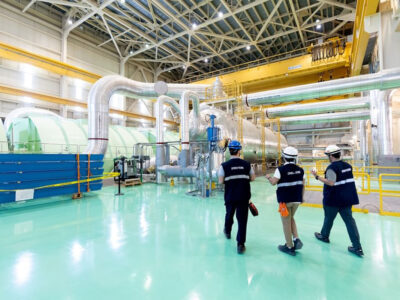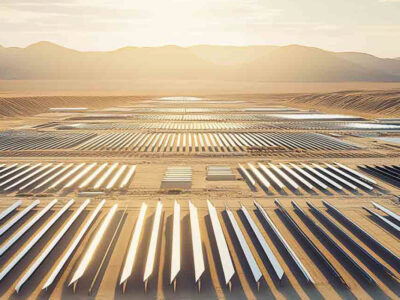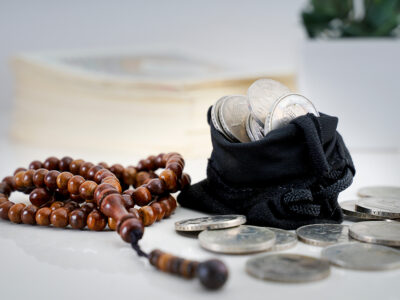Dubai has joined the growing number of Middle East producers that are reclaiming their oil assets from foreign concessionaries. In a landmark decision, the government announced last month that the emirate will take back control of its offshore producing fields from the main foreign concessionaire, Conoco Philips-operated Dubai Petroleum Company, starting April 2007.
A newly created state entity, Dubai Petroleum Establishment (DPE) will be responsible for operating the oilfields and will handle all future upstream and downstream business related to the production of the hydrocarbons in the emirate. Meanwhile, Dubai oil will continue to be freely traded on the international oil market under contracts established by the government and DPE.
Abdullah Abdul Karim, a Dubai government representative, said: “Our relationship with the DPC-DUMA consortium was established in 1961. This relationship has served Dubai well over the years.
“Forty years later, it is clear that production will far outlast the period of the concession agreement and all parties agree that it is appropriate to initiate a transition of [operational control] to the government at this time.”
This move by the government coincides with a wave of resource nationalism that is sweeping across oil-producing countries. In Algeria, Bolivia, Russia and Venezuela, laws have been passed to allow the host government to exercise greater control over their hydrocarbon industries.
Record oil prices and scarce crude discoveries could be the reasons why governments want to have control over their remaining crude. They are following in the path of some Middle Eastern countries—Kuwait, Saudi Arabia, Oman have all previously decided to exercise more control over their national crude extraction and production. The Gulf producers have been reluctant to open their fields to foreign investment. A case in point is the long awaited Project Kuwait that has been pending for years now for want of parliamentary approval.
But, most analysts believe this will definitely not be the case with Dubai. The glitzy Middle Eastern destination has become a commercial and tourist hub, largely owing to its economic policies where the emirate has very successfully liberated trade, finance and real estate.
The move by the government is seen by industry insiders as being an effort to reverse declining production. Crude production has fallen from a peak of 400,000 barrels per day in 1991, as a result of field maturity at Dubai’s four offshore fields, Fatheh, South West Fatheh, Falah and Rashid fields. Income from oil accounted for only 5.4% of Dubai’s gross domestic product in 2004, down from 25.5% in 1995, according to the Dubai Chamber of Commerce & Industry. The emirate earned US $6.7 billion from oil sales in 2004.
These four mature fields have been contracted by the newly formed DPE to British oil and gas service provider Petrofac, on the same day of the announcement of the transfer. After the departure of DPC in April 2007, Petrofac will take control of the operation of all of Dubai’s offshore hydrocarbon assets. The offshore assets operated by DPC comprise four offshore fields, about 70 platforms and 1,100 staff.
The contract award is indeed ground-breaking as it is the first time, a service provider has been handed an oil exploration and production contract. Many see this as proof of Dubai’s openness to change and believe that it may even usher in a new era of oil contracting terms in the Middle East.
According to Ayman Asfari, Petrofac’s CEO, the contract is reflective of an emerging trend in the industry.
“This ground-breaking contract with Dubai Petroleum Establishment represents the first time a national government entity has chosen to exploit its hydrocarbon resources through direct contracting with an international service provider.”
Though Dubai’s crude production may be nothing to boast about with regards to its volume, in one area its crude still has far greater significance than even Abu Dhabi crude, as it acts as a benchmark for more than 12 million bpd of Middle East sour crude that is exported to Asia.
By not exclusively falling back on the national public expertise that will be available in the newly formed company DPE, but instead trusting a leading international, private service provider may bring positive results to Dubai’s dwindling production. It may even serve as a wake-up call to other Gulf states that are not employing greater technical expertise in the hydrocarbon industry. Petrofac manages many platforms in the North Sea, UK and is reportedly confident of using its experience from the UK to improve production in Dubai.
Petrofac has already suggested using advanced secondary methods of crude extraction and enhanced oil recovery methods with a steady capital infusion from the Dubai government.
According to the Oil and Gas Journal, Dubai still sits on about four billion barrels of oil, which definitely is worth exploiting, especially given the current price of oil.
Many analysts, like Dalton Garris of the Petroleum Institute of Abu Dhabi, have said the move cannot be dismissed as resource nationalisation, but rather as one to genuinely increase production at a time of need.
Though Dubai has very effectively managed to diversify its economy from oil, the remaining hydrocarbon resources will have to be managed effectively, and this move seems to be in that direction.







